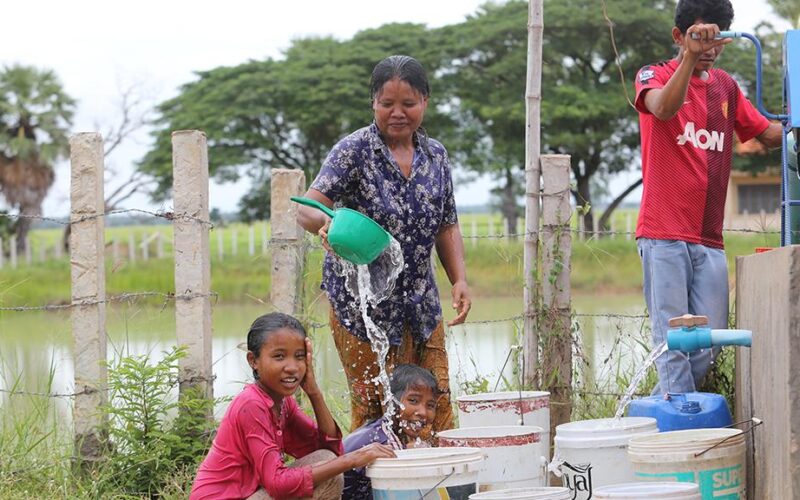The Asian Development Bank (ADB) has approved $93.6 million in loans and grants to enhance and expand climate-resilient and inclusive rural water supply, sanitation, and hygiene (WASH) facilities for 88,000 households across 400 villages in 50 communes within nine Cambodian provinces.
The Rural Water Supply, Sanitation, and Hygiene Improvement Sector Development Programme will support Cambodia’s government in its mission to achieve universal access to safe water supply services and basic hygiene facilities in rural areas, while also improving access to safe sanitation and addressing affordability concerns.
A key focus of the programme is to increase private sector involvement in delivering water supply services. Additionally, it aims to ensure the climate resilience of WASH facilities by integrating climate change considerations into planning, design, and implementation processes. The programme will also enhance coordination among stakeholders and promote the decentralization of functions to ensure effective service delivery.
“The program supports ‘WASH for all’ by prioritizing rural populations in remote areas. It proposes reforms to strengthen governance in the management of community-managed WASH facilities and scale up government planning for sustainability and climate resilience,” said ADB Country Director for Cambodia Jyotsana Varma.
The programme includes a $3 million grant from the Japan Fund for Prosperous and Resilient Asia and the Pacific, aimed at expanding WASH facilities in provinces where poor rural residents face significant challenges in accessing safe water, sanitation, and hygiene facilities. The targeted provinces include Banteay Meanchey, Battambang, Kampong Speu, Kampot, Kratie, Oddar Meanchey, Pailin, Preah Vihear, and Stung Treng.
Additionally, a $600,000 technical assistance grant from the Sanitation Financing Partnership Trust Fund under the Water Financing Partnership Facility will be used to strengthen the government’s capacity to implement key sector reforms under the programme.
As of 2022, only 29% of Cambodia’s population had access to safely managed water supply, with the figure dropping to 20% in rural areas. Access to safely managed sanitation stood at 37% nationally and 34% in rural areas. Approximately two million rural residents still practice open defecation, which contaminates land and water resources and contributes to waterborne diseases.
















